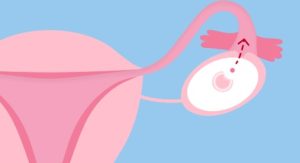Does your anxiety have you feeling like you’re walking on a tightrope every day?
You’re not alone. Lots of teens struggle with anxiety. The good news is there are ways to tame your anxiety by using essential extra long pads while having a heavy flow of your periods, so it doesn’t control your life.
In this post, we’ll share tips to help you find your Zen among the chaos of anxiety. We’ve got you covered from quick fixes for calming nerves to long-term strategies for keeping anxious thoughts at bay.
Read on to learn simple ways to get your anxiety under control and start feeling more at ease.

Top Strategies to Help Teens Attain Inner Peace and Balance
Let’s uncover how teenagers can achieve inner peace, calmness, and balance in their lives. It provides valuable insights on how to cope with daily stressors and challenges that might affect their mental and emotional well-being.
The guide emphasizes the importance of self-care, mindfulness, and positive thinking as essential tools for achieving a state of Zen.
Let’s get into this!
- Take a timeout
When anxiety starts to bubble up, take a quick walk or do some light exercise like yoga. Physical activity releases feel-good hormones that can help calm your nerves. ###
- Challenge negative thoughts
Try to identify negative thoughts and replace them with more positive, realistic ones. For example, replace “I’m going to fail this test” with “I’ve studied hard and will do my best.” Focusing on the positive can help minimize worrying.
- Connect with others
Call a friend or talk to someone you trust about your anxiety or worries. Let others support and reassure you. You don’t have to go through this alone.
- Practice mindfulness
Spending a few minutes focused on your breathing or the present moment can help shift your mind from anxious thoughts. Try meditation, deep breathing, most comfortable sanitary pads, or a calming app with guided meditations.
- Maintain a routine
Go to bed and wake up simultaneously each day, even on weekends. Eat healthy meals, buy essentials sanitary pads, and limit excess caffeine and sugar. Taking good care of yourself with healthy habits can boost your mood and ease anxiety.
- Seek professional help if needed
If anxiety is persistent or interfering with your life, consider seeing a therapist. A mental health professional can help determine if you have an anxiety disorder and provide treatment like cognitive behavioral therapy or medication if needed. You deserve to feel better, so don’t hesitate to ask for help.
Managing Anxiety: Lifestyle Changes and Coping Strategies
Here are some tips and tricks and by following these tips, teenagers can learn how to manage their thoughts and emotions, reduce anxiety and depression, and cultivate a more peaceful and fulfilling life.
Find Your Zen Zone
Where do you feel most at ease? Maybe it’s reading a book in a cozy chair, taking a walk outside, doing yoga, or journaling. Make time each day to do an activity that helps quiet your mind and release pent-up tension.
Connect With Others
Don’t go through this alone. Talk to people you trust, like close friends or a parent, teacher, or counselor. Let them know what you’re experiencing and how they can support you. Making social connections can help reduce anxiety and make you feel better equipped to handle stressful situations.
Practice Self-Care
Getting enough sleep, eating healthy, and exercising is essential for both your physical and mental health. Aim for 7 to 9 hours of sleep per night, use the best sensitive sanitary pads, choose nutritious whole foods over junk food, and get at least 30 minutes of exercise most days. Taking good care of yourself will boost your mood and resilience, making you better prepared to cope with anxiety and stressful events.
Learn Relaxation Techniques
Deep breathing, meditation, and mindfulness are simple but effective ways to lower anxiety. Take deep, slow breaths from your diaphragm to activate your body’s relaxation response. Start with just 5 or 10 minutes a day of meditation or mindfulness and build up from there. These techniques can help shift your mind from a state of worry and stress to a place of calm and focus.
Practice these coping strategies and self-care tips consistently and be patient with yourself. Reducing anxiety is a journey, not a destination. With time and effort, you can gain more confidence and feel less overwhelmed by stressful thoughts and situations. Stay positive – you’ve got this!
FAQ: Answering Common Questions About Teen Anxiety
What exactly is anxiety?
Anxiety is characterized by feelings of worry, fear, and unease that are strong enough to interfere with your daily activities. For teens, anxiety often centers around social interactions, academic performance, and uncertainty about the future.
What are some common symptoms of anxiety in teens?
Teens with anxiety may experience:
- Feeling worried or fearful most of the time
- Difficulty concentrating
- Trouble sleeping
- Physical symptoms like nausea, sweating, and racing thoughts
Should I see a doctor for my teen’s anxiety?
If your teen’s anxiety is persistent and interfering with their life, it’s a good idea to talk to their doctor. A doctor may recommend therapy, medication, or lifestyle changes to help get anxiety under control. A doctor or counselor can also help determine if the anxiety may be related to an underlying condition like social anxiety disorder or OCD.
What can I do to help my teen reduce anxiety?
Some things you can encourage your teen to do to help alleviate anxiety include:
- Exercising regularly. Exercise is a great outlet for anxious energy and also releases feel-good hormones that can help improve mood.
- Practicing relaxation techniques like deep breathing, meditation, or yoga.
- Getting enough sleep. Aim for 8-10 hours of sleep per night to feel rested and better able to cope with anxiety.
- Eating a healthy, balanced diet. A healthy diet can boost mood and reduce anxiety. Focus on whole foods like fruits and vegetables, lean proteins, and whole grains.
- Limiting caffeine and screen time. Both can exacerbate symptoms of anxiety.
With support, therapy, and self-care strategies, anxiety is very manageable for most teens. The key is not to avoid anxiety but to develop the tools to live with it healthily.
So, you see, anxiety can do a number on teens, but you don’t have to just accept it as part of growing up. Start trying out some of these ideas to find what helps you chill out and stay grounded. Maybe journaling gets your thoughts flowing healthily.
Or some deep breathing when you feel your heart racing calms you down. Finding activities you enjoy that get you out of your head can work wonders too. The key is to be patient with yourself and keep at it. Don’t let anxiety stop you from living your best life. You’ve got this!







